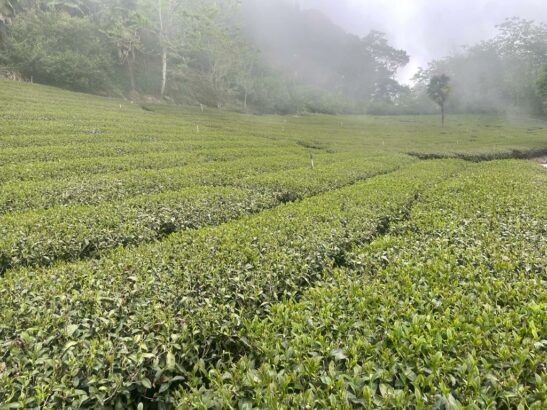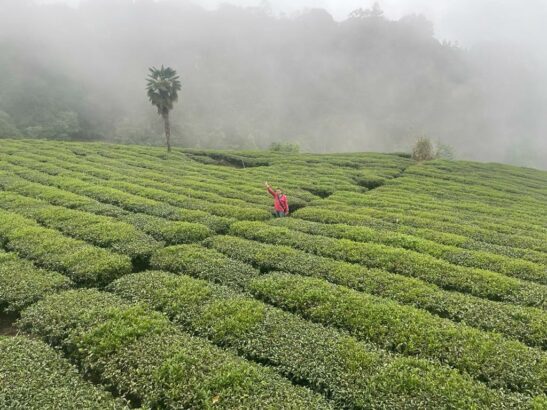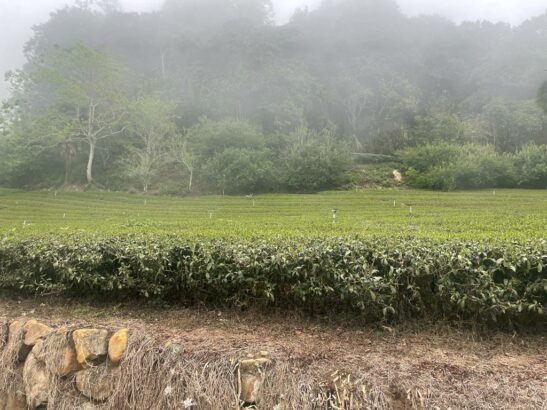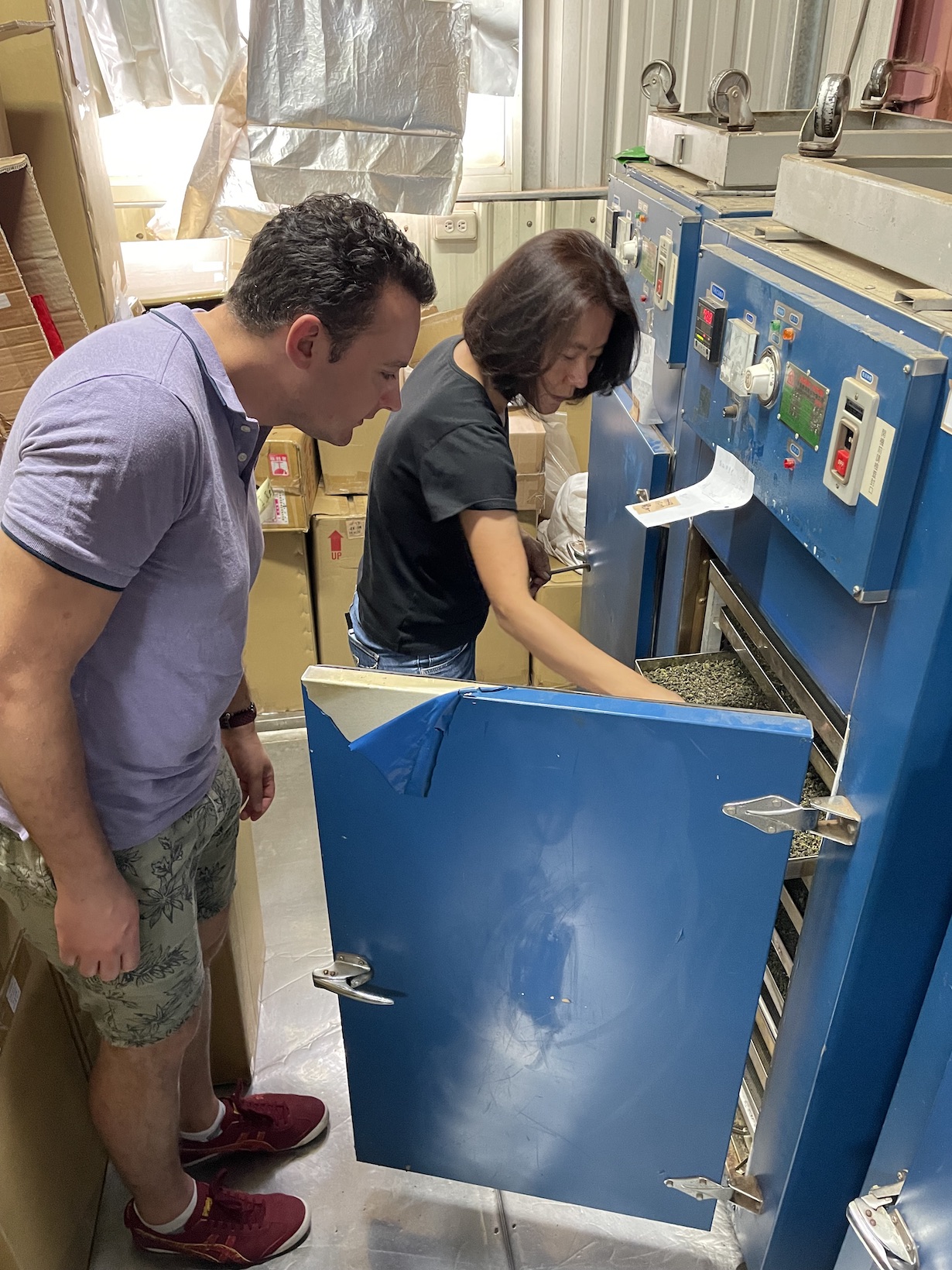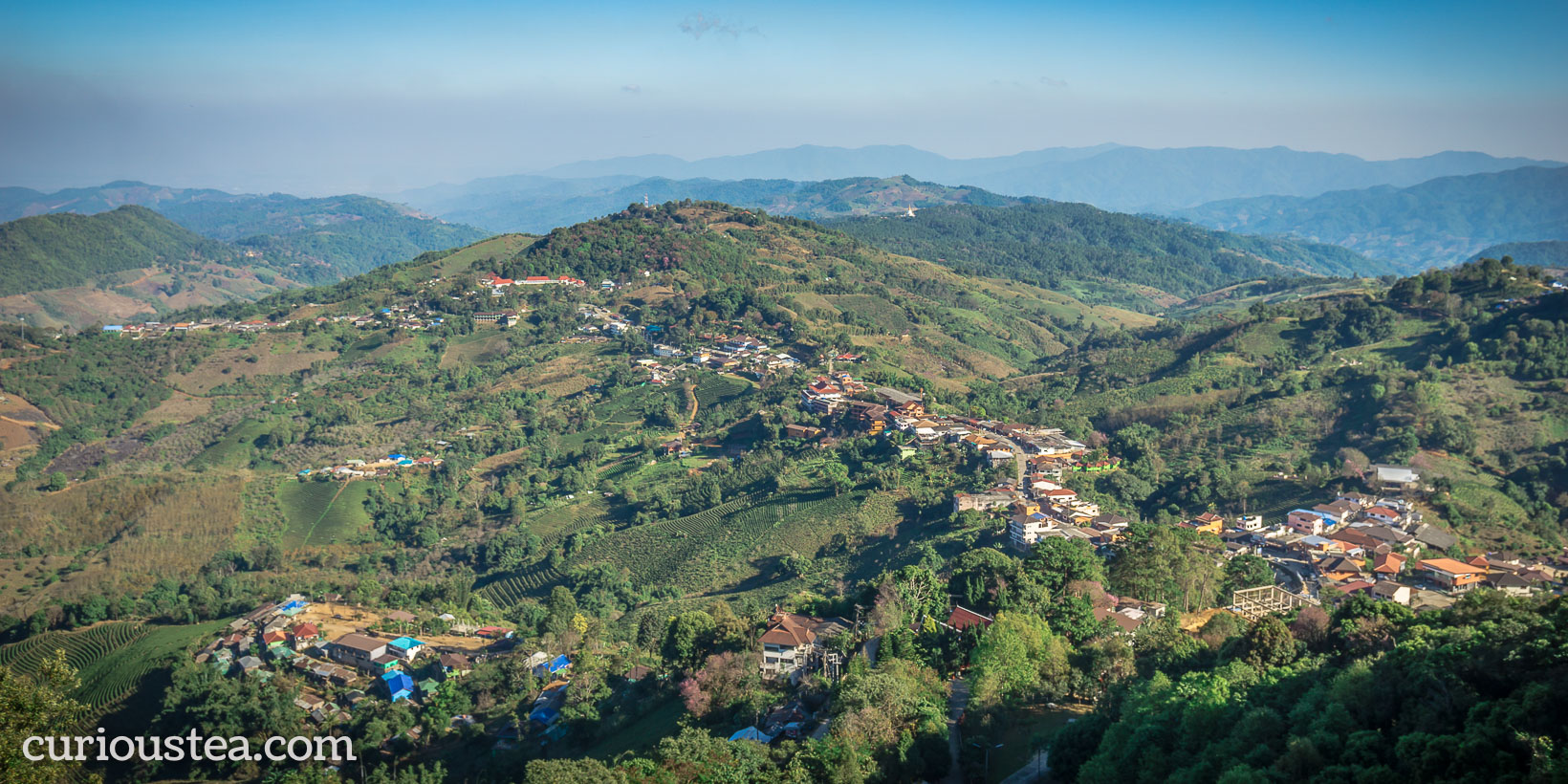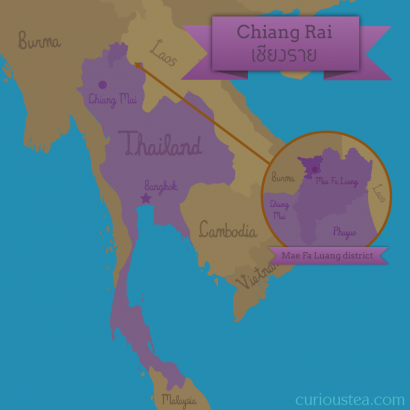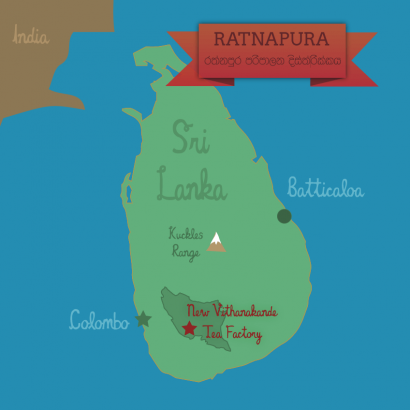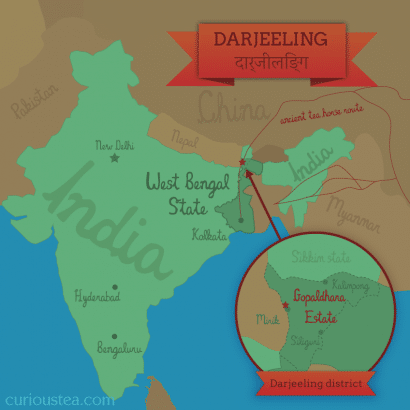Welcome to the July 2023 edition of the Curious Tea subscription! Here’s a closer look at the four exciting new teas that we are sharing with our subscribers this month.
The first light tea this month is a complex Qing Xin Oolong from Yushan that was custom baked with our Taiwanese tea master during our recent visit to Taiwan. The second light tea is a traditionally scented Jasmine Dragon Pearls oolong from Thailand tea that delivers a delicate jasmine flavour.
For the dark side of the selection we have our award-winning Ceylon Silver Tips black tea that has a classic smooth Ceylon flavour. Finally the last tea to be featured is a rare, high grade Everest Orchid Second Flush Darjeeling from the highest sections of Gopaldhara Tea Estate.
Our Discovery subscription boxes contain 10g taster pouches of all of the above mentioned teas. If you are a subscriber you will benefit from a 10% discount on all teas from our tea shop!
Let’s get into further detail on these teas featured in our July tea subscription boxes.
Yushan Light Baked Qing Xin Oolong
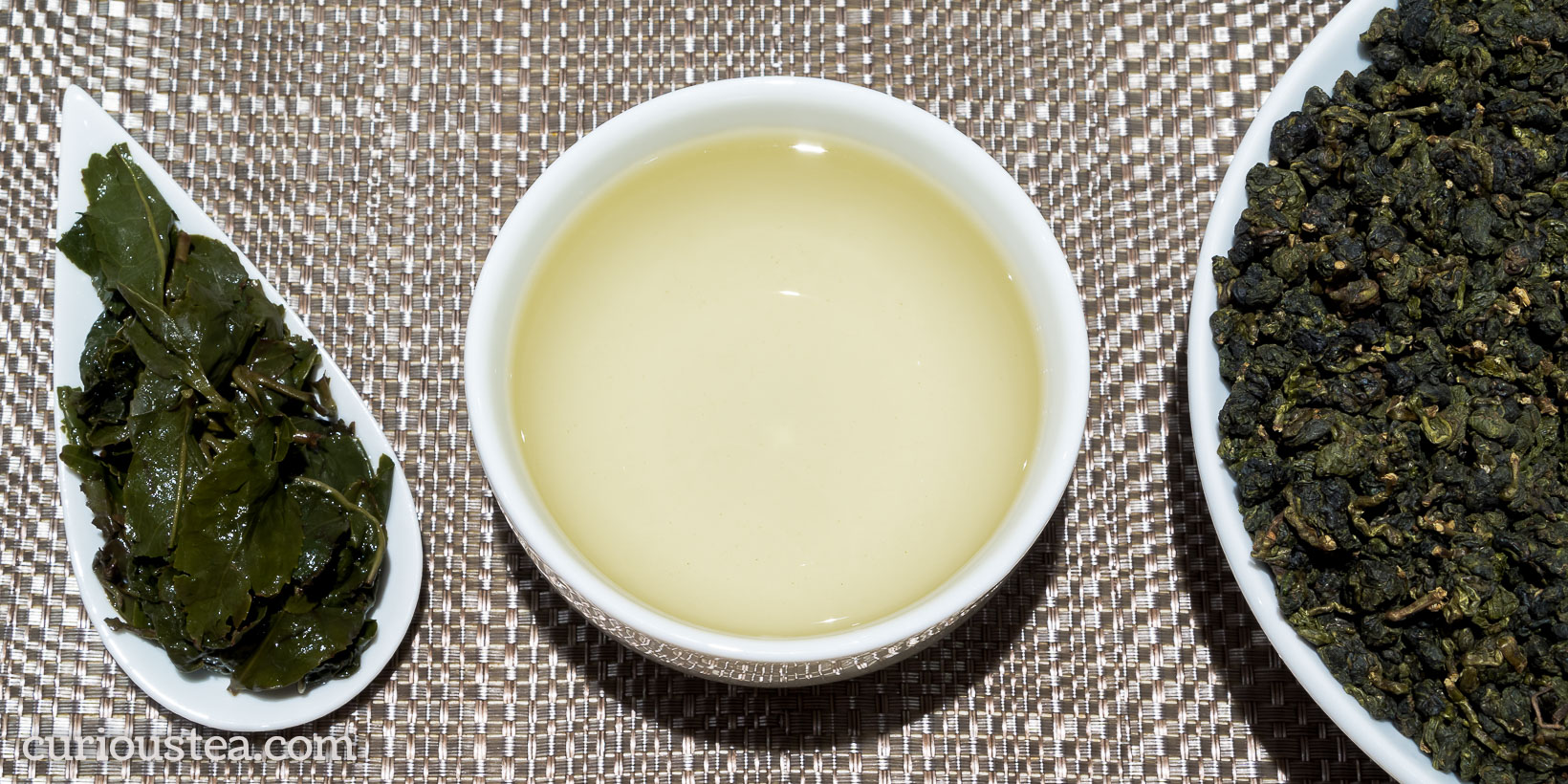
Yushan Light Baked Qing Xin Oolong (玉山青心烏龍) is a complex tea that is grown around Yushan (Jade Mountain) in Xinyi Township of Nantou Province. Made from the Qing Xin cultivar plants, this tea undergoes light baking that was done by our tea master together with us during our June 2023 visit to Taiwan. This allows the tea to develop a fuller flavour with more complex notes that range from floral and creamy to slightly toasty, baked ones that are very satisfying and comforting. This particular tea is grown to organic standards and was handpicked in May 2023.
Yushan Light Baked Qing Xin Oolong comes from the garden of Mr Chen, located in the Yushan Mountain tea growing area at an altitude of about 1,500-1,600 metres. Mr Chen runs the garden to natural farming standards, hence this tea is organic, but not certified organic. The garden itself is completely surrounds by dense forests for kilometres around, which means that there is no possible cross contamination from other gardens. The remote nature of the garden means that it is difficult to get to but that contributes to making this tea very natural and clean.
The vast majority of oolong teas grown at high altitude in Taiwan are made from the Qing Xin ‘Green Heart’ (青心) cultivar plants. This is true of most Sun Link Sea oolong teas as well. This particular Yushan Qing Xin Oolong is also made from hand-picked leaves of Green Heart cultivar plants. They are picked in mid-April, and come in classic tightly rolled leaf shape. The oxidation level is approximately 10-15% and the baking level is 2/10. This results in a beautiful floral aroma and character that Taiwanese high mountain oolong teas are famous for.
This particular Yushan Oolong was custom baked for us by our Taiwanese tea master during our visit to Taiwan in June 2023. This kind of light baking is a popular way of making the flavours more concentrated and complex. It also has the added benefit of making the tea more stable, improving the shelf life and keeping it fresher for longer. For this particular bake, it lasted about 16 hours. The baking process starts at lower temperature or around 60°C and as temperature is gradually increased, the time at each higher temperature mark is decreased. The final bake was 110°C for just 10 minutes.
During the bake the flavours of the tea change quite dramatically. The fresh tea starts off being quite verdant, a little floral but almost closer to a green tea. As the baking progresses, the tea flavours become very dull and greatly diminish. After the middle phase as the temperature starts increasing, more baked flavours start coming out but overall it still remains quite dull. The final high heat phases really make the flavours sing, with all floral and creamy flavours really popping up and the baked taste commingling with them to create this complex, lightly baked flavour.
Yushan Light Baked Qing Xin Oolong consists of tightly rolled leaves of varying sizes. It produces a bright clear liquor with a baked floral aroma. The taste is green and verdant with a lightly herbaceous edge. The dominant flavours are baked, floral and creamy. It has a very sweet quality and nutty, almond note. The aftertaste is clean, refreshing but the baking adds a certain comforting edge. This tea is a great showcase how careful, considered baking can add complexity and flavour.
This tea is best brewed at 90°C for 2-3 minutes according to your taste, brewing multiple times. It can be brewed 3+ times depending on your taste preferences. To get the most out this tea, consider using a gaiwan or a traditional clay pot to benefit from the complexity of flavours from repeated multiple infusions. For gong fu brewing we suggest using 6g per 100ml at 95c. Optional 2-3 second rinse, 1st infusion 25s, add 5s to each further infusion. Gong fu style brewing should get many, many infusions from this lovely tea!
You can also buy this Yushan Light Baked Qing Xin Oolong tea in our online shop.
Santikhiri Jasmine Dragon Pearls Oolong
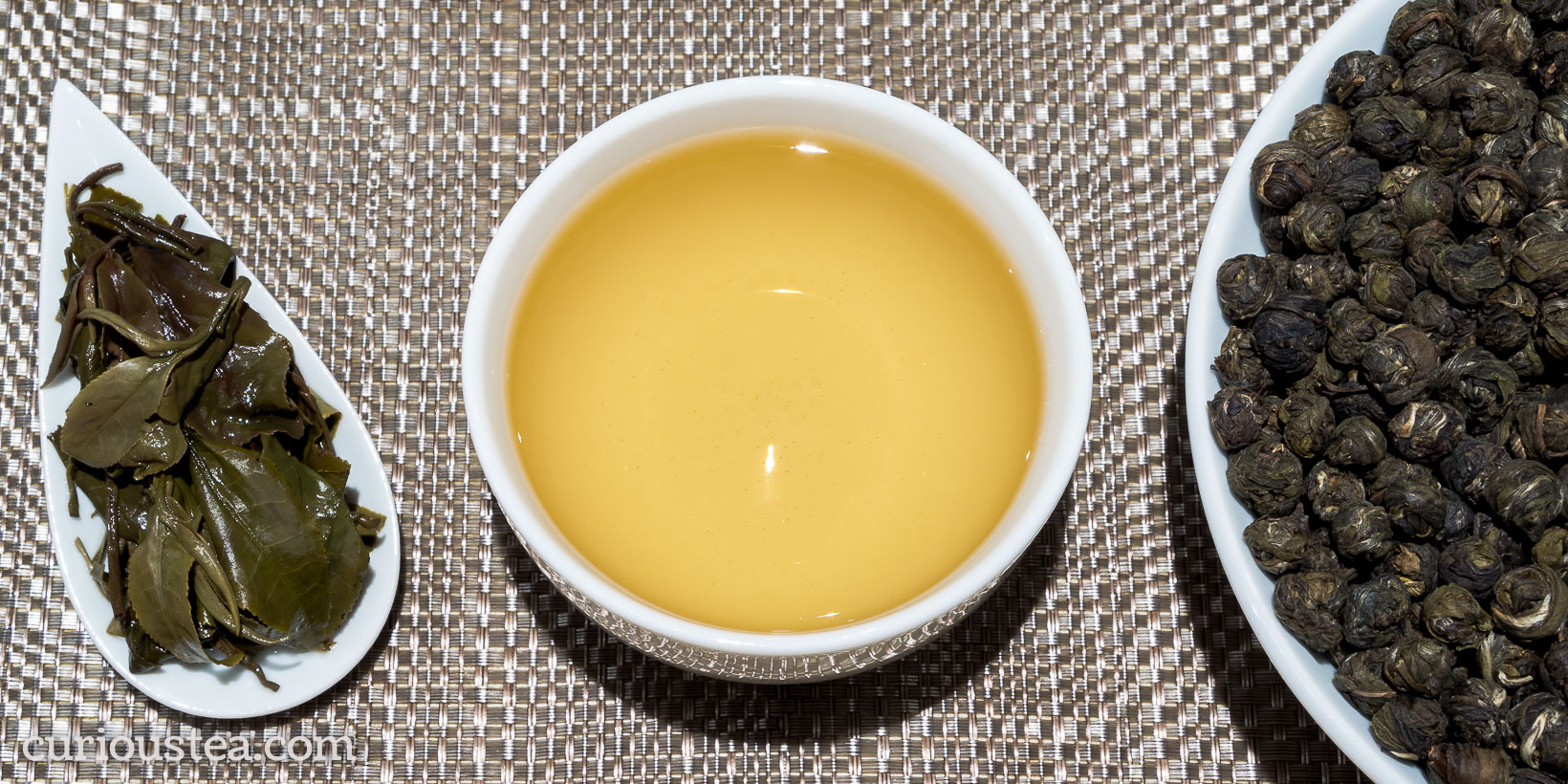
Santikhiri Jasmine Dragon Pearls Oolong is an interesting oolong tea that is produced from Camellia sinensis var. assamica, although this particular strain is native to northern Thailand. It is grown around Santikhiri village (formerly Mae Salong) in Thailand, which is located around the highlands of Doi Mae Salong mountain, close to the border with Burma and Laos. After picking and rolling, it is traditionally scented with jasmine blossom to produce a light and delicate floral liquor that is very easy-going. Grown at an altitude of around 1,200-1,600 metres, it was picked and scented in June 2023.
Locally known as ‘Bai Yai’ or ‘Large Leaf’ this strain of tea plant has been growing wild around this part of Thailand for centuries. In fact, there are local wild tea plants just like this one around many parts of Southeast Asia, the particular strain differing from one locality to the next. While a lot of wild trees are still found around this area of Thailand, this Santikhiri Jasmine Dragon Pearls Oolong tea is harvested from plants that are cultivated at a tea garden in Doi Mae Salong.
This area of Thailand is part of the Golden Triangle of Southeast Asia, the largest producer of opium from the 1950s well into the 1990s. Following eradication campaigns that started in Thailand in the 1980s, the production of opium has vastly decreased in this particular part of the Golden Triangle. It has been particularly effective in Thailand, where tea was recognised as one of the sustainable commercial crops to replace opium poppy growing. This was in a way appropriate as many of the original immigrants to northern Thailand’s poppy fields came from Yunnan in China. With a long history of tea growing, it was easier for these Yunnanese immigrants to switch from growing opium poppies to once again growing a sustainable tea crop.
While many tea cultivars now grown in Thailand have been imported from Taiwan, the local native strain has been preserved, in some part thanks to the Yunnanese immigrants that came with the intent of growing poppies, yet stayed on to grow tea. After all there is more similarity between this native Thailand strain of assamica and the strains of the tea plant that are found in Yunnan. So the centuries old traditions of tea growing and processing from Yunnan found a new place in northern Thailand.
While most Chinese Jasmine Dragon Pearls teas are green teas, this one is slightly more unusual as it represents a lightly oxidised oolong. This Santikhiri Jasmine Dragon Pearls Oolong consists of large leaves and buds, still on stem, that have been rolled into balls. These unfurl quite quickly as they are not rolled too tightly. The pale cream-coloured liquor has a vegetal and jasmine aroma that is not overpowering. It is definitely more of a delicate tea, with jasmine scenting being on the lighter side. The approachable flavour has a floral jasmine note with a sweet and vegetal taste. The aftertaste is clean, subtle and refreshing.
This green tea is best brewed at 90°C for 2-3 minutes according to your taste and can be brewed more than 3 times, increasing steeping time with each next brew if desired.
You can also buy this Santikhiri Jasmine Dragon Pearls Oolong tea in our online shop.
Ceylon NV Silver Tips
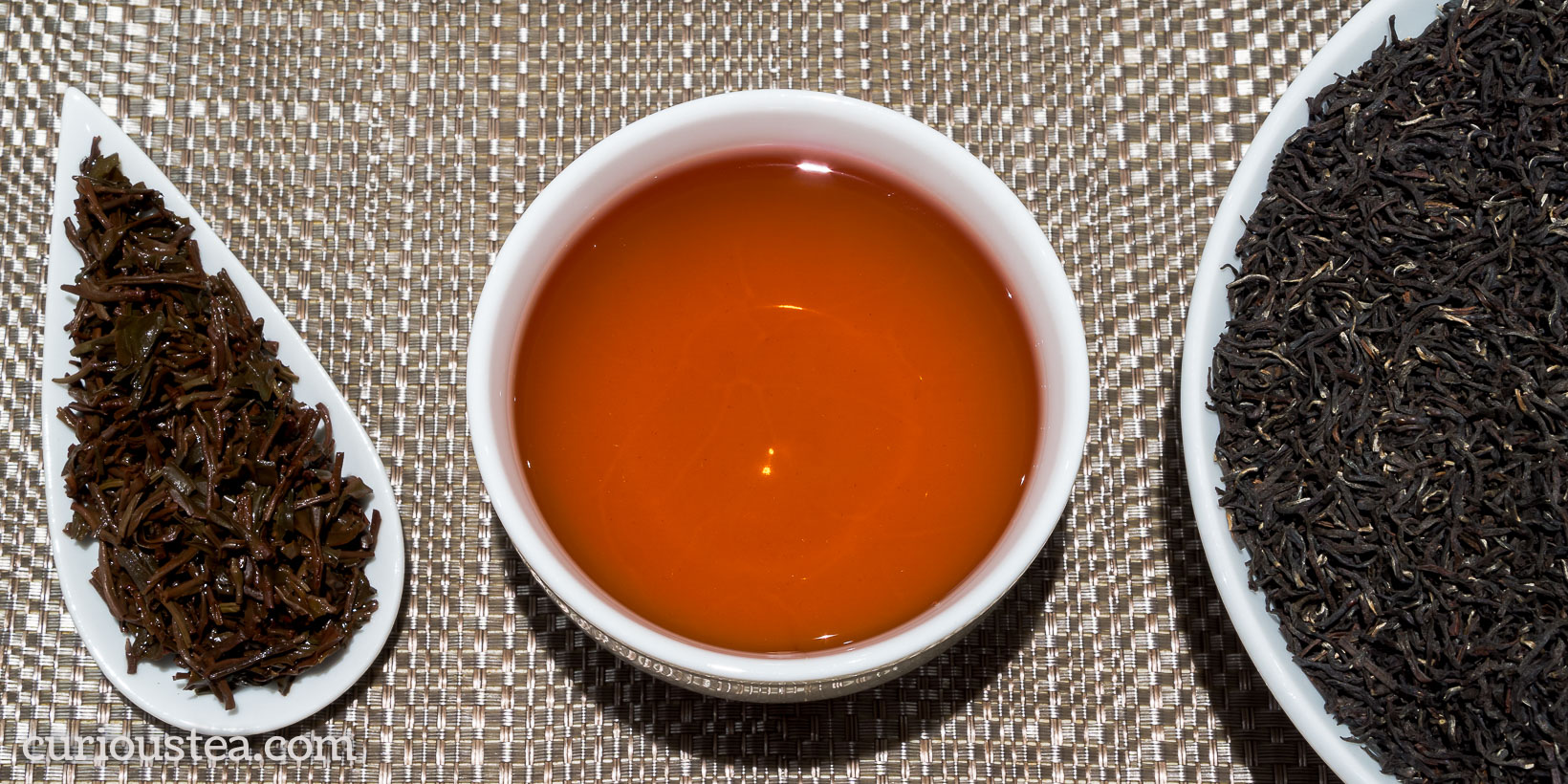
Ceylon New Vithanakande Silver Tips is an extremely well made black tea that comes from the New Vithanakande tea estate in Ratnapura, Sri Lanka. The ‘Silver Tips’ name comes from the appearance of the leaves as they feature silver or slightly golden tips, which signifies the high quality nature of this tea. It is a low-grown Sri Lankan Silver Tips, grade FBOPEXSP, or Flowery Broken Orange Pekoe Extra Special. While higher altitude teas are highly prized in Sri Lanka, lower altitude estates do produce some fantastic teas that have a fuller character, often full of exotic tropical notes. The current batch is from the May 2022 harvest.
The tea farmers in Sri Lanka have had a difficult recent past, with the government encouraging more farmers to switch to CTC (crush, tear, curl) methods of tea production in the 1990’s, trying to capture the huge CTC market. CTC tea is normally used to fill tea bags, so the move was away from quality and onto quantity. This switch from orthodox methods was a big failure as Sri Lankan teas could not compete with cheaper CTC teas from other large and the then up-and-coming CTC tea growing countries, such as India, Kenya and Malawi. This move also damaged the reputation and quality of Sri Lankan tea, resulting in many farmers choosing to eventually abandon CTC production in favour of orthodox methods of tea production. Now Sri Lanka is rightly regaining its status as a major exporter of high quality orthodox teas and there are more and more interesting and exciting producers of these Ceylon teas, such as this Ceylon Silver Tips from New Vithanakande tea estate.
The leaves of our Ceylon New Vithanakande Silver Tips black tea are neat, black and wiry with a distinctive silver and gold spine. The liquor produced is a very deep red colour with a light comforting aroma. It has a smooth flavour that is malty and mineral in character. The deep flavour is quite typical for Sri Lankan teas and is very appealing to those looking for a tea with a ‘British’ flavour profile. There are slightly malty and tangy notes of fruits and molasses. A pleasant level of astringency on the aftertaste completes this classic black tea.
This tea is best brewed with water at 90°C for 3-4 minutes and the leaves can be brewed around 2 times.
We also offer Ceylon NV Orange Pekoe black tea from New Vithanakande tea estate.
You can also buy this Ceylon NV Silver Tips black tea in our online shop.
Darjeeling Gopaldhara Everest Orchid
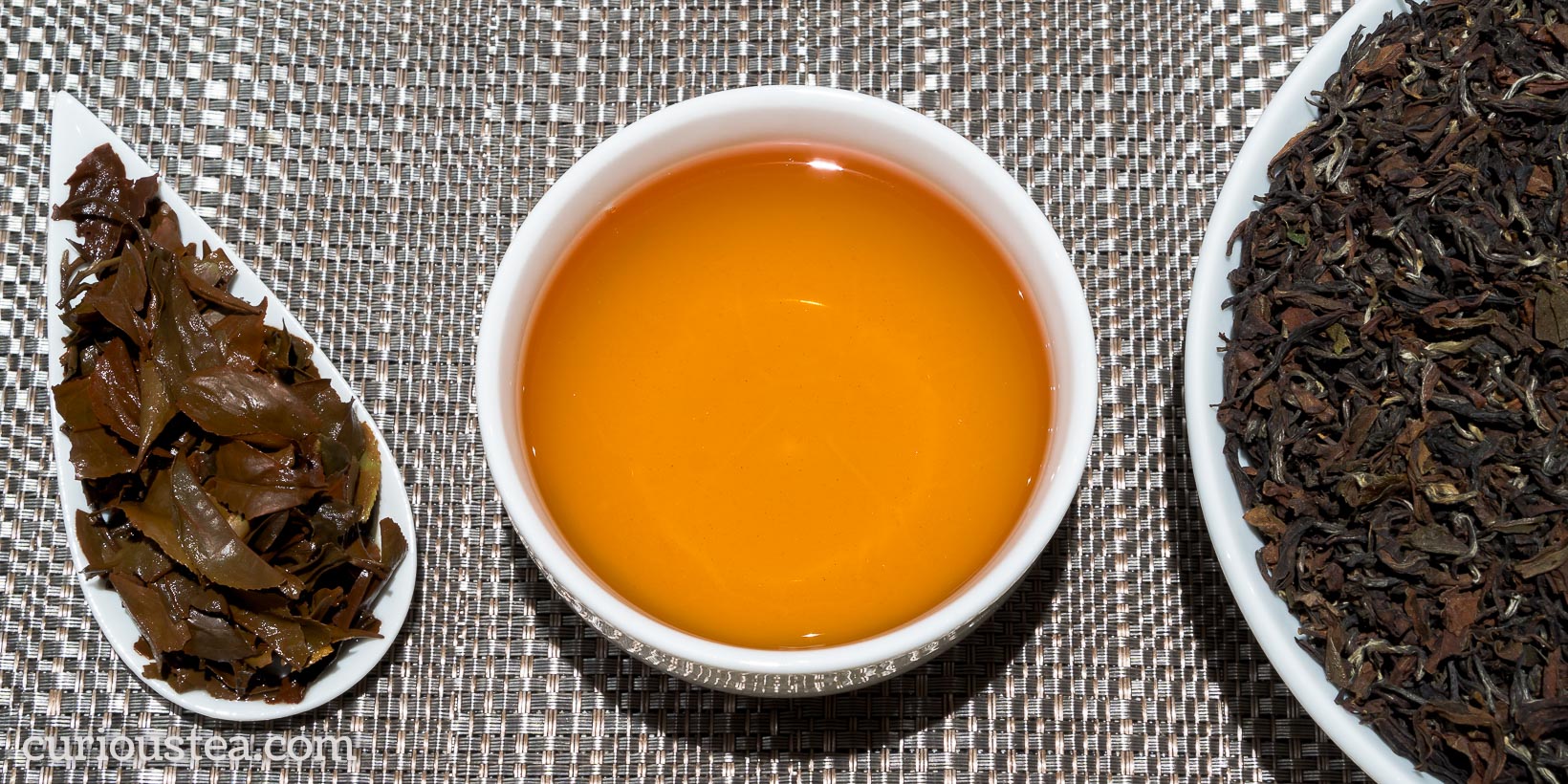
Darjeeling Gopaldhara Everest Orchid is an exceptional Second Flush Darjeeling from Gopaldhara Tea Estate. It is crafted from carefully selected AV2 and 312 tea plants that are grown at the highest sections of the garden between 1,700-2,100 metres.The highly oxidised leaves produce a refined muscatel character with an intriguing wine-like finish. This tea was crafted in June 2022.
Like all our of Gopaldhara teas, we source this tea directly from Rishi Saria, the owner and director of Gopaldhara and Rohini Tea Estates. Gopaldhara Tea Estate is nestled in the Mirik Valley, in the Himalayan foothills, and is one of the highest tea estates in Darjeeling with elevations of up to 2,100m. It is renowned for producing teas of exceptional quality and very often quite unusual character. The estate is also known for innovation, with new types of tea that utilise new and traditional production methods being developed every season.
Second Flush Darjeeling teas are generally not as sought after or as well regarded as their earlier spring First Flush counterparts. The flavours are quite different and many have a preference for the finer, more pronounced mineral and muscatel characters of the best First Flush teas. However Second Flush Darjeeling teas have many fans, who are drawn to them by the more complex and robust profiles. A good Second Flush Darjeeling certainly should exhibit a character that is more rounded, having a stronger overall flavour. But these stronger flavours should be well balanced – just like in this particularly fine example from Gopaldhara. This balanced profile is particularly attractive to those who find First Flush teas to be a little on the lighter and more mineral side!
This Darjeeling Gopaldhara Everest Orchid has mixed tippy leaf with a higher degree of oxidation to achieve that fine Second Flush muscatel flavour. The careful selection of specific garden sections for this tea as well as considered processing really brings out a complex flavour with a taste that is fruity, floral, lightly malty and mineral. The taste is definitely fuller in the middle, becoming a little lighter towards the finish. But the aftertaste has a very pleasant degree of tannins that are very similar to red wine, leaving a wine-like impression at the very end of the tasting. This is definitely a more refined Second Flush offering from Gopaldhara and make an interesting comparison to the everyday classic Second Flush from them.
This tea is best brewed at 90°C for 2 minutes and can be brewed 2+ times. Like all top grade teas from Gopaldhara and Rohini, you can try experimenting with gongfu brewing.
You can also buy this Darjeeling Gopaldhara Everest Orchid black tea in our online shop.
We really do hope that you enjoy this tea selection and are looking forward to the selection in our August box. It will feature our classic Ming Qian Long Jing green tea from China and un unusual Japanese Sencha that is blended with Sakura and Matcha. For the dark side of the selection, we have a Japanese black tea from Yakushima Island in Kagoshima and a ripe pu-erh from Mengku that comes shaped in large dragon pearls.
If reading this has made you curious about our teas, but you don’t yet subscribe to a monthly tea selection, you can sign up for our tea boxes in just a few clicks. We ship worldwide from London, UK.
We always love to hear from you, so if you have any questions, suggestions or just want to chat about tea, email us at contact@curioustea.com, via our Facebook page or via Twitter.

